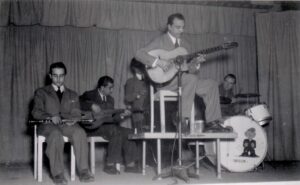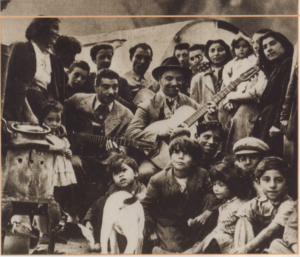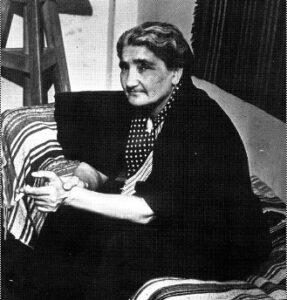Django Reinhardt Documentaries
Unveiling Django Reinhardt’s Story: Explore a curated collection of captivating documentaries, delving into the extraordinary life and career of the legendary guitarist. Immerse yourself in rare interviews, archival footage, and personal anecdotes, unraveling the essence of this jazz icon’s enduring legacy.
1957
“Django Reinhardt” by Paul Paviot

In 1957, filmmaker Paul Paviot directed a documentary about Reinhardt, with a script written by two of France’s most renowned intellectuals, Chris Marker and Jean Cocteau. The resulting film is a stunning portrait of Reinhardt’s life and music, capturing the spirit of one of the most creative periods in the history of jazz.
The documentary opens with a shot of a group of musicians sitting around a table, smoking and chatting. It is immediately clear that these are not ordinary musicians – they are the giants of the jazz world, gathered together to pay tribute to Reinhardt and his legacy. The camera lingers on their faces, capturing the reverence and respect they feel for the man and his music.
The film then cuts to a shot of Reinhardt himself, playing his guitar in front of a small audience. It is immediately apparent why he is so revered – his playing is both technically impressive and deeply emotional. The camera lingers on his hands as they move across the fretboard, capturing the fluidity and grace of his playing.
As the film progresses, we are treated to a series of interviews with Reinhardt’s friends, family, and fellow musicians. They speak of his talent, his charisma, and his larger-than-life personality. They recount stories of his wild antics, his love of music, and his unquenchable spirit. Through these interviews, we get a sense of who Reinhardt was as a person, and why he was so important to the jazz world.
Interspersed with the interviews are performances by Reinhardt and his band. These performances are some of the highlights of the film, showcasing Reinhardt’s virtuosity as a musician and his ability to create music that is both complex and accessible. The camera captures the energy and excitement of these performances, transporting us back to a time when jazz was at its most innovative and exciting.
The script, written by Chris Marker and Jean Cocteau, is poetic and evocative. It captures the spirit of Reinhardt’s music, and the era in which it was created. It is a testament to the power of jazz as an art form, and to the enduring legacy of one of its greatest practitioners.
In conclusion, the documentary Django Reinhardt by Paul Paviot, with a script by Chris Marker and Jean Cocteau, is a must-see for anyone interested in jazz or music history. It captures the essence of Reinhardt’s life and music, and the spirit of one of the most creative periods in the history of jazz. Through interviews, performances, and poetic narration, the film transports us back to a time when jazz was at its most exciting and innovative, and reminds us of the enduring power of music to inspire and uplift us.
1960
Hommage a Django Reinhardt 1960
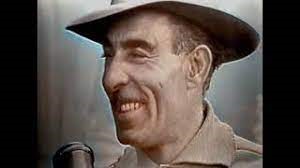
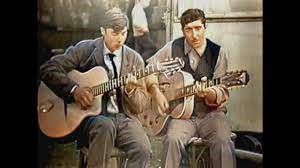
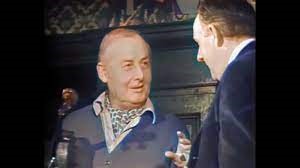
“Hommage a Django Reinhardt 1960” is a documentary film directed by Jean Christophe Averty, Simon Copans, Maurice Culaz, and Charles Delaunay, which pays tribute to the legendary guitarist Django Reinhardt. The film captures a live performance by a group of renowned musicians, including Reinhardt’s former collaborator, violinist Stephane Grappelli, as they perform some of Reinhardt’s most famous compositions in front of a live audience.
The film not only showcases the musical prowess of the performers but also provides a glimpse into Reinhardt’s life and career. Through interviews with the musicians and rare footage of Reinhardt himself, the film highlights the impact that Reinhardt had on the music world, particularly in the development of jazz and the guitar as an instrument.
“Hommage a Django Reinhardt 1960” is a must-watch for fans of Reinhardt and jazz music, as it offers a unique opportunity to witness the music of one of the greatest guitarists of all time performed live, and to gain insight into the man behind the music.
Content and performances:
“Montagne Ste Geneviève” (“Valse à Django”
Matelo & Maurice Ferret, (guitare), Jean-Baptiste “Mac Kac” Reilles (batterie), Emmanuel Soudieux (basse)
Biographie de Django
Tears
Matelo Ferré, Maurice Ferret (guitare), Jean-Baptiste “Mac Kac” Reilles (batterie), Emmanuel Soudieux (basse)
Pour que ma vie
Babik Reinhardt, Mitsou Vées, Ninine, Eugène Vées
Interview d’Eugène Vées par S. Copans
Djangology
Babik Reinhardt, Loulou (Pierre Vées), Ninine (Eugène Vées), (guitare)
Biographie de Django (suite)
Swing 42
Matelo Ferré, Maurice Ferret (guitare), Jean-Baptiste “Mac Kac” Reilles (batterie), Emmanuel Soudieux (basse)
Swing 39
Matelo Ferré, Maurice Ferret (guitare), Jean-Baptiste “Mac Kac” Reilles (batterie), Emmanuel Soudieux (basse)
Biographie de Django (suite)
Dinette
Eugène “Ninine”Vées, Henri “Dingo” Adel, Romuald Adel (guitare), Vivian Villerstein (violon), Emmanuel Soudieux (basse)
Manoir de mes rêves
Eugène “Ninine” Vées, Henri “Dingo” Adel, Romuald Adel (guitare), Vivian Villerstein (violon), Emmanuel Soudieux (basse)
Biographie de Django (suite)
Blues for Django
Laro Sollero, René Mailhes, (guitare) Luigi Trussardi (basse), Michel Babault (batterie)
Interview Stéphane Grappelli (par Charles Delaunay)
Djangology
Stéphane Grappelli (violon), Joseph Reinhardt, Babik Reinhardt, Eugène “Ninine” Vées, (guitare), Jean-Baptiste “Mac Kac” Reilles (batterie), Emmanuel Soudieux (basse)
Biographie de Django (suite)
Nuages
Stéphane Grappelli (violon), Joseph Reinhardt, Babik Reinhardt, Eugène “Ninine” Vées, (guitare), Jean-Baptiste “Mac Kac” Reilles (batterie), Emmanuel Soudieux (basse)
Daphné
Full video on Youtube
Hommage à Django Reinhardt – 1960 (Colorized)
1991
“Django Legacy” (1991)
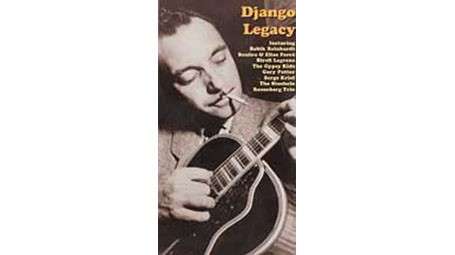
UK. 52 min. Directed by John Jeremy, with music of Ian Cruickshank. Babik Reinhardt. Jazzology Productions
“…Django for Baro, Matelo or Serane, had a relationship like the pope and the bishops, a tradition like a trinity, religious and ritualistic. In the case of the gypsies, like a family, like a saga.”
– Boulou Ferrè, “Django Legacy” Documentary 1990”
British television documentary exploring the legacy and influence of Django Reinhardt, Samois-sur-Seine festival and later generations. With Sacha Distel’s narration, with Babik Reinhardt, Boulou Ferré, Elios Ferré, Sani, Falko, Jimmy, Gary Potter, Richard Chiche, Serge Krief, Bert Niblett, The Stochelo Rosenberg Trio, Fapy Lafertin, Biréli Lagrène and others.
Review by Tony Russell:
“The focus of this documentary is the annual festival held in Django’s honor at Samois-sur-Seine, France … from the devotees you hear most of the classics:”Manoir de Mes Reves”, “Douce Ambiance”, Djangology”, “Minor Swing”, and, of course, “Nuages”… But although tribal legatees have a lot of space here – Django’s son Babik, Bireli Lagrene, Boulou and Elios Ferre, Fapy Lafertin, the Dutchman Stochelo Rosenberg, the Tunisians Serge Krief and Richard Chiche – some outsiders are cordially admitted to the circle, like the extraordinarily gifted Gary Potter from Liverpool. Its the details that gives John Jeremys film its special character. That, and a deep affection for their subjects which he not only explains but passes on to the viewer. I can’t imagine any lover of Django’s music being other than delighted by this film.”
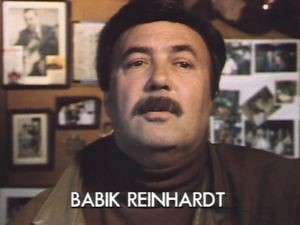
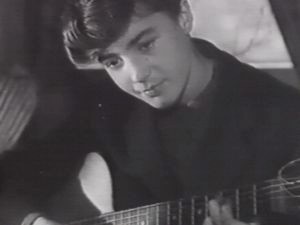
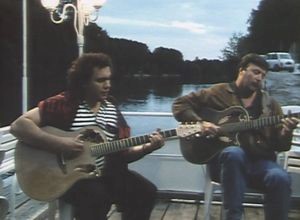
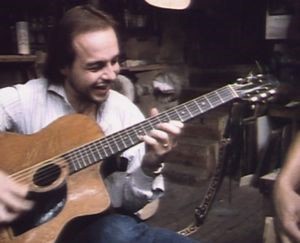
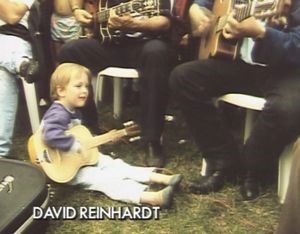
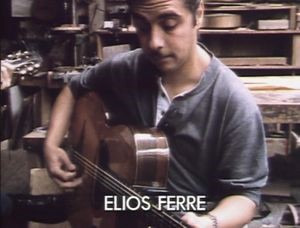
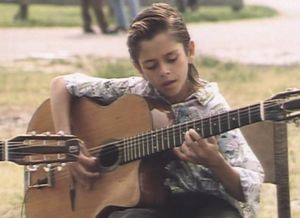
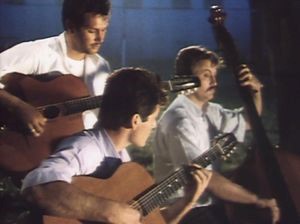
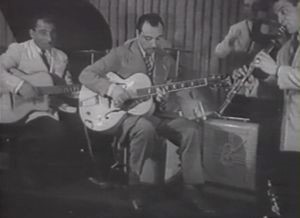
1991
“Nuages” (53 min)
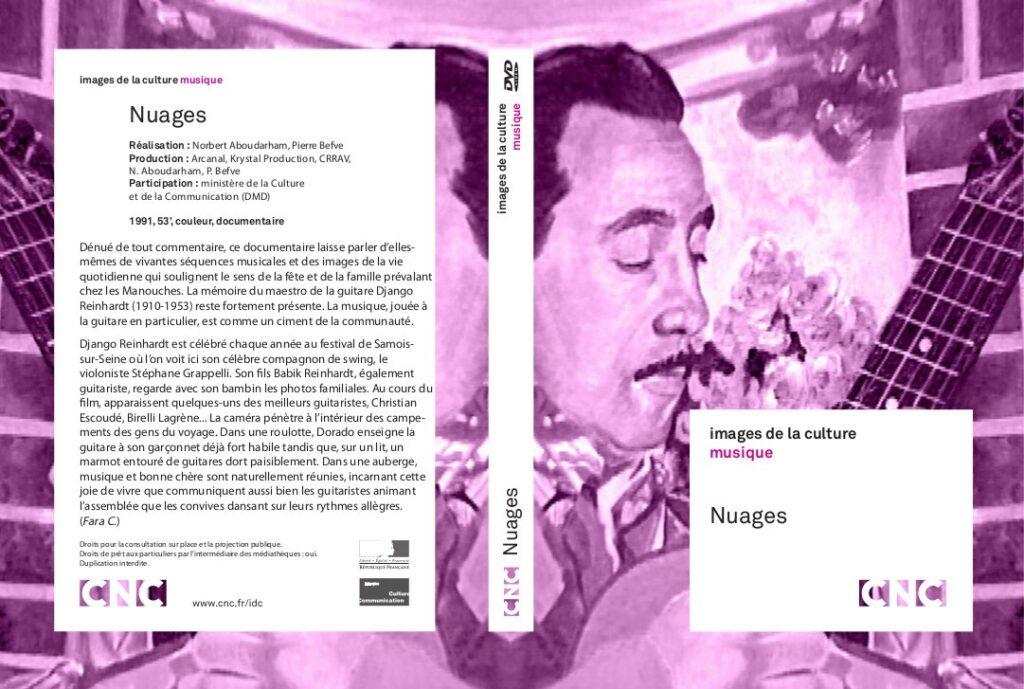
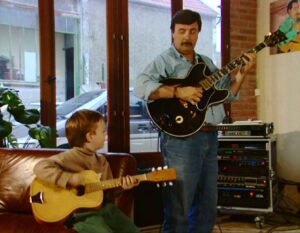
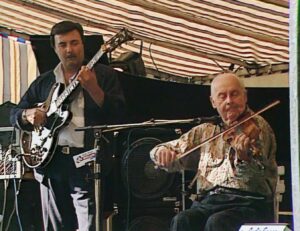
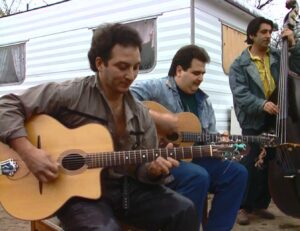
The film by Nobert Aboudarham and pierre befve, offers a biographical account of the life and legacy of the legendary guitarist and composer Django Reinhardt, who is renowned for his innovative contributions to the development of the jazz genre, particularly in the development of gypsy jazz. The film is a product of Arcanal Krystal Production, a company that specializes in the production of documentaries and cultural programs.
The film provides a detailed exploration of Reinhardt’s life, beginning with his early days growing up in poverty as a Romani boy in Belgium. Despite his difficult upbringing, Reinhardt demonstrated exceptional talent for music, particularly the guitar, which led to his eventual rise to international fame as a musician. The film examines Reinhardt’s pioneering style, characterized by the use of rapid arpeggios, harmonic complexity, and a strong sense of melody that was influenced by Romani folk music.
The filmmakers also delve into Reinhardt’s personal life, exploring his relationships with family, friends, and collaborators, as well as his experiences during World War II, where he faced discrimination and persecution as a Romani person. The film features interviews with many of Reinhardt’s contemporaries and collaborators, including Stephane Grappelli, the violinist and jazz musician who formed the Quintette du Hot Club de France with Reinhardt. The film also features archival footage and recordings of Reinhardt’s performances, offering a glimpse into the brilliance and innovation that made him such an influential figure in the development of jazz music.
The film’s title, “Nuages,” comes from one of Reinhardt’s most famous compositions, which translates to “clouds” in English. The piece, which was composed in 1940 during the German occupation of France, is a haunting and melancholic tribute to the uncertainty and fear of the times. The film captures the essence of Reinhardt’s music, emphasizing the emotive power and the impact it had on the world of jazz music.
Stéphane Grappelli, Django Reinhardt, Christian Escoudé and Babik Reinhardt are part of the documentary.
Overall, “Nuages” is a compelling and insightful film that offers a rich and engaging portrait of one of the most important musicians of the 20th century. The film is a testament to the talent and innovation of Django Reinhardt, showcasing his unique style and musical contributions that continue to inspire generations of musicians. The film is a must-watch for anyone interested in jazz, music history, or the life of one of its most iconic figures.
1995
Django: “A Jazz Tribute” Babik Reinhardt & Bireli Lagrene
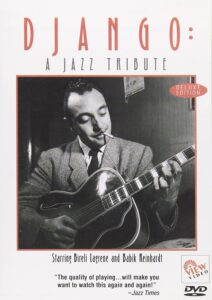
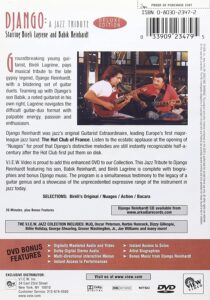
DVD Django: A Jazz Tribute is a mesmerizing musical experience that pays homage to the legendary jazz guitarist Django Reinhardt, featuring the outstanding performances of an all-star ensemble of jazz musicians. The performance features the incredible talent of Babik Reinhardt, Django’s son, who is carrying on his father’s tradition and Bireli Lagrene. They both play her with electric guitar, all “Django´s music” songs are performed.
The musicians on the DVD come together to create an unforgettable performance that stays true to the spirit of Reinhardt’s original compositions. Each musician brings their own unique style to the music, and their collective talent is remarkable. The standout performances include the virtuosic guitar playing of Bireli Lagrene and Babik Reinhardt. Babik’s playing is steeped in the tradition of his father and adds a personal touch that makes this tribute even more special.
Overall, DVD Django: A Jazz Tribute is a must-see for any fan of jazz music or Django Reinhardt. The performances are electrifying, and the tribute to Reinhardt’s music is both respectful and innovative. This DVD is a true testament to the enduring legacy of one of jazz music’s greatest icons, and a reminder of the power of music to inspire and uplift. With the inclusion of Babik Reinhardt, this tribute is a fitting tribute to a father-son musical dynasty that will continue to inspire generations to come.
26 minutes. Edited by View Video USA. 1995
2005
“Django Reinhardt King of Jazz”
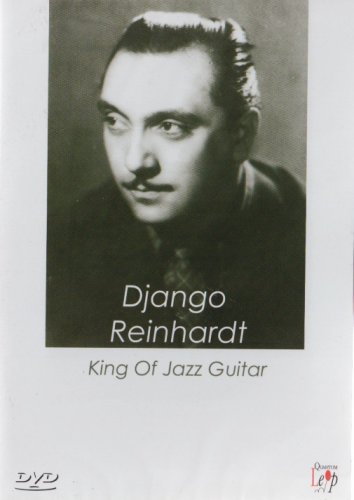
Produced in 2005, this jazz documentary directed by Jordi Vall Escriu explores the life and music of Django Reinhardt, a legendary jazz guitarist who revolutionized the genre with his unique style and innovative approach.
The film takes us on a journey through Reinhardt’s life, from his early years as a Romani musician in Belgium, to his rise to fame as a solo artist and leader of the Hot Club de France. Through interviews with jazz experts and historians, as well as archival footage and photographs, we gain a deeper understanding of Reinhardt’s musical genius and his enduring legacy in the jazz world.
One of the main themes of the film is Reinhardt’s remarkable ability to blend traditional Romani music with jazz, creating a new sound that was both innovative and deeply rooted in his cultural heritage. Reinhardt’s use of the guitar as a lead instrument, his innovative fingerstyle technique, and his incorporation of Romani scales and rhythms into jazz compositions were groundbreaking at the time, and continue to influence musicians today.
The film also explores Reinhardt’s personal life, including his struggles with addiction and his relationships with women, as well as his experiences as a Romani musician in a largely white, European jazz scene. Through interviews with Reinhardt’s family members and friends, as well as rare footage of the musician himself, we gain a deeper understanding of his complex personality and the challenges he faced both on and off stage.
Overall, “Django Reinhardt King of Jazz” is a captivating and informative documentary that sheds new light on one of the most important figures in jazz history. Director Jordi Vall Escriu does an excellent job of balancing the music with the personal story, creating a film that is both entertaining and enlightening. Whether you are a longtime fan of Reinhardt’s music or simply interested in the history of jazz, this documentary is well worth watching.
2010
“Django Reinhardt: Trois Doigts de Génie”
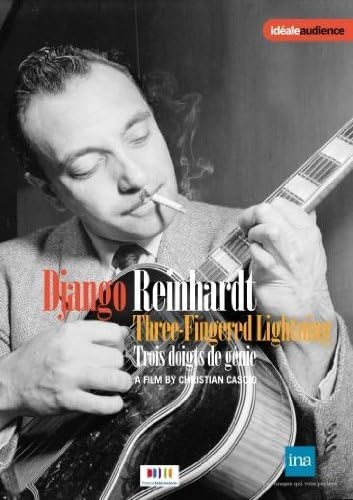
The documentary, which translates to “Django Reinhardt: Three Fingers of Genius,” was released in 2010 to commemorate the centennial of Reinhardt’s birth. Directed by Jacques Deschamps, the film features interviews with musicians, historians, and family members who knew Reinhardt personally. Through their stories and insights, we get a glimpse into the life of this enigmatic musician.
The documentary starts with Reinhardt’s childhood, growing up in a Romani community outside of Paris. We learn how he was first introduced to music, and how he quickly fell in love with the guitar. From there, we follow his journey as he becomes one of the most influential jazz musicians of all time. We hear about his collaborations with the famous violinist Stephane Grappelli, his struggles during World War II, and his continued influence on modern jazz guitarists.
One of the highlights of the documentary is the music. We get to hear some of Reinhardt’s most famous recordings, including “Minor Swing” and “Nuages.” The film also features performances by contemporary jazz guitarists who have been influenced by Reinhardt’s style, such as Bireli Lagrene and Angelo Debarre.
The documentary is not just a celebration of Reinhardt’s music, but also a tribute to his Romani heritage. We learn about the discrimination and persecution that Reinhardt and his community faced, and how his music helped to bring Romani culture to a wider audience. Reinhardt’s music continues to be celebrated by Romani musicians today, and the film shows how his legacy lives on.
From a Jazz and music perspective, “Django Reinhardt: Trois Doigts de Génie” is a great topic to target for jazz enthusiasts and music lovers. By using relevant keywords such as “jazz guitar,” “Django Reinhardt,” and “documentary,” this article can rank well on search engines and attract traffic from people who are interested in learning more about Reinhardt’s music and legacy.
In conclusion, “Django Reinhardt: Trois Doigts de Génie” is a must-see for anyone who loves jazz music or wants to learn more about one of its greatest pioneers. The documentary is a testament to Reinhardt’s talent and influence, and serves as a reminder of the power of music to bring people together.
2011
“Life After Django Reinhardt”
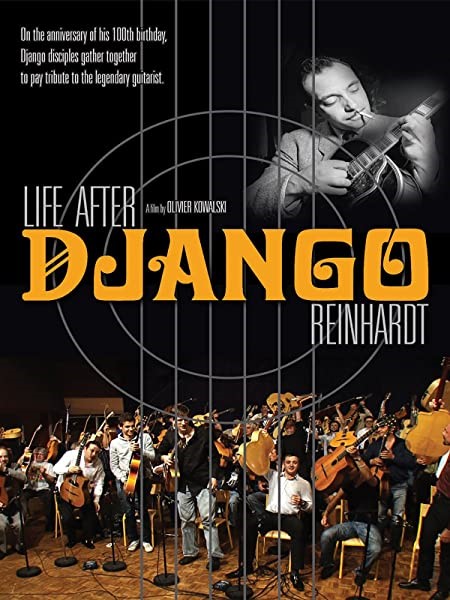
The documentary “Life After Django Reinhardt“, directed by Oliver Kowalski is a fascinating exploration of the enduring influence of the legendary jazz guitarist Django Reinhardt. Directed by Oliver Kowalski and released in 2011, the film examines how Django’s music and style have continued to inspire musicians long after his death.
The film opens with a brief overview of Django’s life and career. Through archival footage and interviews with historians and musicians, we see how Django’s unique sound and technique made him a star in the jazz world. We learn about his collaborations with violinist Stephane Grappelli and his impact on the development of the gypsy jazz genre.
From there, the film moves into its main focus: how Django’s music has continued to inspire musicians in the years since his death. We hear from a diverse range of musicians, including gypsy jazz guitarists, rock guitarists, and even classical musicians. They all share their personal connections to Django’s music and explain how his style has influenced their own playing.
One of the most interesting aspects of the film is how it shows the ways in which Django’s music has been adapted and transformed over the years. We see examples of musicians who have taken his style in new directions, incorporating elements of rock, blues, and even electronic music into their playing. Yet, even as they push the boundaries of Django’s sound, they always remain true to the spirit of his music.
The film also explores the enduring popularity of gypsy jazz, a genre that Django helped to create. We hear from musicians who continue to play in the gypsy jazz tradition, and learn about the growing community of fans and players who are keeping the style alive.
Overall, “Life After Django Reinhardt” is a fascinating look at the lasting impact of one of the most influential musicians of the 20th century. Through interviews with musicians, historians, and fans, the film shows how Django’s music continues to inspire and evolve, more than half a century after his death. Whether you’re a fan of jazz or simply interested in the creative process, this documentary is well worth a watch.
Official trailer: Life After Django Reinhardt – Official Trailer
2012
“Les fils du vent”
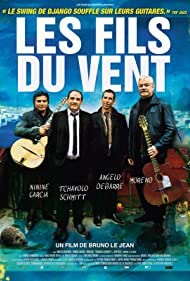
Direction Artistique : BRUNO LE JEAN
“Les fils du vent” is a 2004 French documentary film directed by French
filmmaker Bruno Le Jean.
Sons of the wind – Les fils du vent – Τα παιδιά του ανέμου. Moreno, Tchavolo, Debarre, Ninine.
2013
“Meet me at samois”
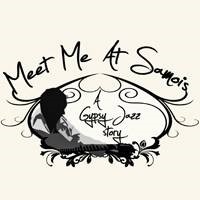
This 30-minute documentary explores the lasting impact of Django Reinhardt’s music, moving between the festivals at Liberchies in Belgium, Django’s birthplace, and at Samois-sur-Seine in northern France where he died. The passion to preserve Django’s music and the travelling culture it sprang from is contrasted with the melting pot of the modern festival at Samois as it changes to reflect new styles in contemporary jazz. Director: Makon Bessala
2017
Django Reinhardt Sur les traces de Django DVD
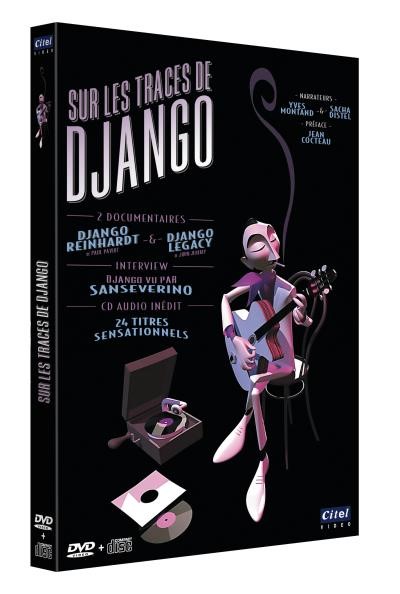
Compilation of 3 Documentaries
Django Legacy 55 min: an extraordinary document, which allows us to see how our current stars had already laid the groundwork for a style that the “general” public would only discover ten years later. These 1980s are certainly the place of crystallization.
Film Django Reinhardt 32 min: the portrait of this artist. Text by Jean Cocteau said by Yves Montand and Preface to the film written by Jean Cocteau
Django seen by Sanseverino 30 min: Sansev’ tells us about his musical encounter with Django and gypsy jazz.
+ CD – 25 tracks
“Sur les traces de Django” is a 2017 documentary film directed by Paul Paviot and John Jeremy. The film follows the life and legacy of the legendary jazz guitarist Django Reinhardt, who is widely regarded as one of the most influential and innovative musicians of the 20th century.
The film explores the roots of Django’s music and his journey from humble beginnings to international stardom. It features interviews with musicians who have been inspired by Django’s style, including John McLaughlin, Bireli Lagrene, and Angelo Debarre. These musicians share their thoughts on Django’s enduring influence on the world of music, and they provide insights into his unique style and approach to playing the guitar.
Through rare footage and archival material, “Sur les traces de Django” also delves into the social and political context in which Django lived and worked. The film shows how he navigated the challenges of being a Romani musician in a time of widespread discrimination and persecution, and how he used his music as a means of expressing his identity and resisting oppression.
